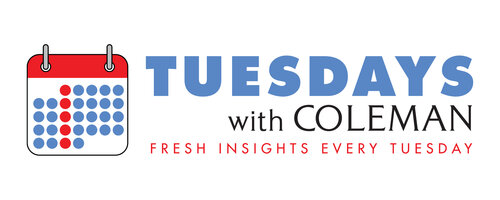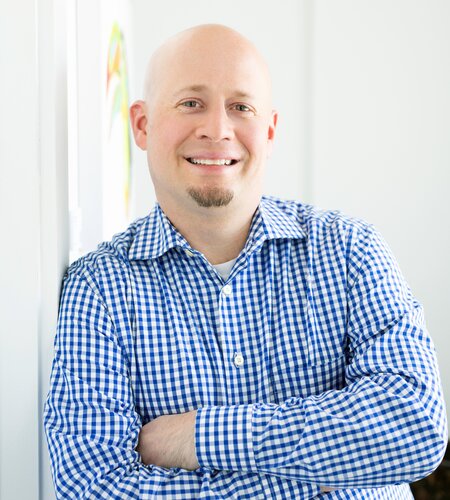
Jon Gay spent 15 years in radio in programming and on-air positions in Burlington, Vermont, Detroit, and New Orleans. Following a downsizing, he dove full-time into podcasting, starting JAG in Detroit Podcasts in 2018. Today he writes, records, edits, and co-hosts podcasts for clients and offers tips on his own podcast, “The JAG Show.” For this week’s Tuesdays With Coleman, I spoke with Jon about how his full-time experiences in each medium inform his perspectives on both.

What are some of the most valuable radio lessons for podcasters?
Everything that applies to building a great morning show applies to podcasts. Be compelling. Get to the point. Don’t beat around the bush.
I had an early radio mentor named Ben Hamilton who told me that doing the radio show was like driving in NASCAR. You do all your work in the pit. When the light turns green, all you got to do is drive the car. And I think the same applies to podcasts.
And, you know, I think having that internal clock from working in radio, in PPM markets especially, is really important where you almost have that axe over your head saying, get to the point and be compelling, or your listeners are going to punch out and turn to the other station.
That’s such a classic radio skill, being able to know exactly how long you have to talk in a break and the ability to stop without even looking at a clock. Many podcasters probably figure they can talk as long as they want, so maybe they don’t develop that skill.
At a chamber of commerce meeting when I joined, they said give us a 30-second pitch about you and your business. So I did, and they had a stopwatch to keep everything on time. The woman with the stopwatch didn’t say anything. I stopped and she said, “Wow, that was exactly 29 seconds.”
I think your point about the skill is absolutely true. Some podcasts start with inside banter about this great new breakfast place and this crazy weather we’re having. Others tell inside jokes of previous episodes, when listeners might be hearing something in June that was recorded in January. All the stuff we learn as entertainers and hosts in radio really does apply to podcasting in terms of keeping it tight, keeping things on point.
The biggest question or most common question I get from clients and potential clients is how long should my podcast be? The answer is as long as it’s good, and too short is better than too long.
One of my early clients works for the National Bone Marrow Transplant Link in Metro Detroit. She was doing a podcast about cancer and cancer patients and interviewing a specialist at Karmanos Cancer Institute. She was planning on doing a 30-minute interview and he was fantastic. He was smooth. Just great on the microphone.
He answered her questions succinctly in a way that can be easily understood. She got through all her questions. She looked at me and said, “Okay, how long was that? And I said, “15 minutes.” She said, “What do we do for the next 15?” I said, “Nothing. We’re done.”
Now that we’ve covered some of the things podcasters can apply from radio, what do podcasters do very well that radio can learn from?
Accessibility and being on demand is something that’s in podcasting’s DNA and not radio. So podcasters know, I’ve got to be on Spotify, Apple, everywhere. And now we’re learning you really should be on YouTube as well. If you’re in radio and you’ve got good content, you’ve got to recognize appointment listening is more challenging. During Covid, people’s routines and commutes changed. We’ve got to meet people where they are. You must tell your listeners, we had this great bit today. We had this incredible guest today. Promote it heavily on social, make it available where they are and when they need it.
What do you think about Amp, Amazon’s new live radio app?
Maybe that’s the new farm system for radio, as opposed to the overnight shows that no longer exist. As opposed to hiring a celebrity or TikTok star, it may actually be a glimpse of a skillset for the magic we create in radio.
